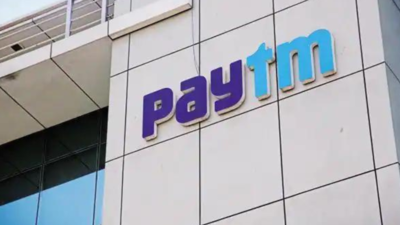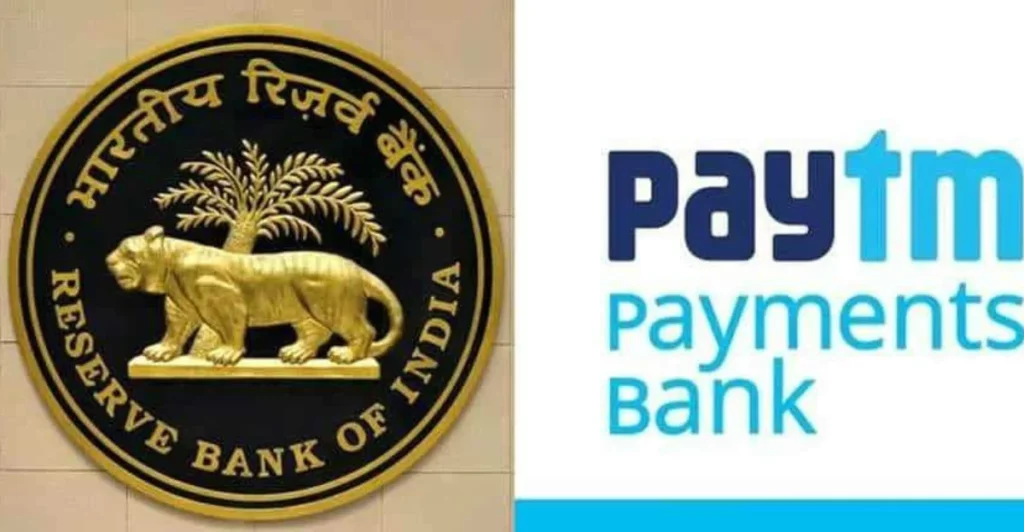The RBI came out and dropped the news that RBI Ban Paytm Payments Bank is in the no-deposits and no-new-users club starting 29 February 2024. Why? Well, it it turns out they weren’t playing by the rulebook – got hit with the “persistent non-compliance” label. For the millions of folks cruising through life with Paytm, it’s like a sudden detour. All those Paytm-linked services we rely on? Yeah, they’re in the mix too. It’s like your routine has a plot twist. Just keeping you in the loop.
RBI Ban Paytm Payments Bank Cause
The RBI’s decision to impose stringent restrictions on Paytm payments bank stems from a comprehensive system audit report and subsequent compliance validation. Concerns over non-compliance prompted the earlier directive in March 2022, instructing Paytm Payments Bank to halt the onboarding of new customers.
Immediate Fallout and Stock Market Impact
In the aftermath of the RBI announcement, Paytm witnessed a staggering 20% drop in its stocks, hitting the lower circuit limit on February 1. The ban not only affects the standalone banking services of Paytm Payments Bank but also extends its impact on popular services like wallets, FASTags, and National Common Mobility Cards (NCMC).
Withdrawal Options for Paytm Users

Existing Paytm Payments Bank customers face limitations on their accounts. While adding funds or making new deposits is restricted, the RBI permits users to withdraw their existing balances. For those with money in their Paytm Wallet, transfers to other bank accounts are still possible, albeit with restrictions. A cap of Rs 25,000 per transaction and a daily limit of Rs 1,00,000 apply, with a 3% transaction fee for transfers to other bank accounts.
Continued Use of Paytm Wallet and Future Transitions
Currently, Paytm users can still utilize their existing Paytm Wallet balances for transactions post-February 29. However, adding additional funds to the Paytm Wallet is no longer an option. Paytm has officially stated that services like Paytm Wallet, FASTags, and NCMC accounts will soon transition to other banks, reassuring users about the continuity of their digital financial services.
Exploring Alternatives to Paytm
With uncertainties surrounding Paytm, users are actively seeking alternatives within India’s digital payment landscape. Several robust options exist, such as PhonePe, BharatPay, and Google Pay, providing e-wallets with functionalities similar to Paytm. Exploring these alternatives can help users seamlessly transition to new platforms without compromising on their digital payment needs.
Impact on Customers Beyond February 29
Customers will encounter limitations post-February 29, including the inability to make deposits, credit transactions, or top-ups in any customer accounts, prepaid instruments, wallets, FASTags, or National Common Mobility Cards. The ban extends to various services like fund transfers, bill payments, and UPI facilities. While debit and credit transactions cease, withdrawals remain unrestricted.
Paytm’s Response and Damage Control
In response to the regulatory blow, Paytm has actively engaged in damage control. Assurances have been issued that existing balances in accounts, wallets, NCMC, or FASTags can still be utilized. The RBI has granted permission for Paytm to credit interest, cashback, or refunds to these payment instruments. Offline merchant payment network offerings, including POS and soundbox services, remain unaffected.
Conclusion
In conclusion, the Reserve Bank of India (RBI) has imposed stringent restrictions on Paytm Payments Bank due to persistent non-compliance, leading to a ban on new customer onboarding since March 2022. The fallout includes a significant 20% drop in Paytm’s stocks, affecting not only the banking services but also popular offerings like wallets, FASTags, and National Common Mobility Cards.
Existing customers face limitations, but withdrawals are allowed. Paytm reassures users about the continuity of digital financial services, with a transition of services to other banks. Users are exploring alternatives like PhonePe, BharatPay, and Google Pay. Post-February 29, customers will experience restrictions on various transactions, including UPI Transaction Limit Per Day, and Paytm is actively engaged in damage control, assuring the use of existing balances and obtaining permission for certain transactions.



